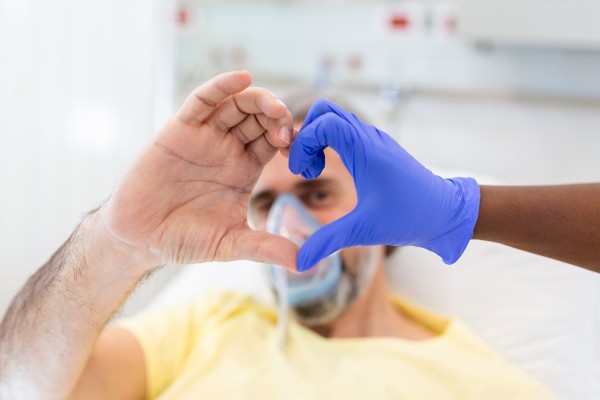Organ donation in New Zealand: understanding your choices
Every day in New Zealand, people are given a second chance at life through the extraordinary gift of organ and tissue donation. As someone who regularly supports families through end-of-life decisions, I've witnessed how this sensitive topic can spark hope, hesitation, and countless questions.

Many people don't realise the range of donations possible. While we often think about major organs like hearts, lungs, livers, and kidneys, tissue donation is equally valuable. Tissue donations include heart valves, skin, bones, and eye tissue, including corneas and retinas. One tissue donor can help multiple people – from someone needing a corneal transplant to restore their sight to burn victims requiring skin grafts to children needing heart valve replacements.
The New Zealand system
In New Zealand, organ donation operates on an 'opt-in' basis. While you can indicate your wish to be a donor on your driver's licence, this is only a preliminary indication. The final decision rests with your family, which is why having open discussions about your wishes is crucial.
Organ Donation New Zealand (ODNZ) coordinates all deceased organ and tissue donations. They work closely with hospitals, donor families, and transplant teams to ensure donations are handled with the utmost respect and care.
Common questions and concerns
"Will doctors try as hard to save me if they know I'm a donor?" Medical teams are completely separate – the doctors treating you have no involvement in organ donation processes. Their sole focus is saving your life.
"Does my religion support organ donation?" Most major religions support organ donation as an act of charity and generosity. However, speaking with your religious advisor can help clarify your faith's position if you have concerns.
"Will donation delay the funeral?" Organ donation typically adds no more than 24-48 hours to funeral arrangements. The process is handled with great respect, and donor families are kept informed throughout.
Different cultures have varying views about organ donation. In New Zealand, it's particularly important to understand tikanga Māori around death and body parts. Some iwi have specific beliefs about keeping the body whole after death, while others support organ donation. These decisions are deeply personal and should be respected.
Eye and retina donation
Eye tissue donation is unique because it can be done up to 12 hours after death, even when other organ donation isn't possible. The donation process doesn't affect how a person looks for viewing at a funeral, as the eyes are carefully reconstructed. A single eye donor can help multiple people:
- Corneas can restore sight to people with corneal blindness
- Retinal tissue is vital for research into eye diseases
- Scleral tissue (the white of the eye) can be used in various eye surgeries
Body donation to science
A different but equally valuable option is donating your body to medical science. This choice supports the education of future healthcare professionals and advances in medical research. In New Zealand, medical schools at the University of Otago and the University of Auckland have specific body donation programmes.
It's important to note that you cannot be both an organ and a body donor—you'll need to choose one or the other. Additionally, medical schools may decline donations for various reasons, including certain medical conditions or if an autopsy has been performed. They also cannot guarantee acceptance at the time of death. If you're considering this option, it's crucial to:
- Register directly with the medical school of your choice while you're still alive
- Discuss your decision with your family
- Have a backup funeral plan in case the donation cannot proceed
- Understand that your body may be with the medical school for up to two years
- Be aware that your family cannot attend a funeral immediately, though memorial services are common
The decision-making process
While your driver's licence indication is important, the key is having open discussions with your whānau. They will be asked to confirm your wishes at a highly emotional time, so knowing your views in advance can make their decision easier.
While most organ donation occurs after death, living donation is possible for kidneys and partial liver transplants. This involves a separate process and requires careful medical and psychological evaluation.
Families of organ donors often find comfort in knowing their loved one helped others live better lives. As one donor mother told me, "Knowing that part of my son lives on, helping others, brings me peace. It's like his light still shines."
Whether you choose to be a donor or not, the most important thing is making an informed decision and sharing it with your family. Consider:
- Your personal values and beliefs
- Your cultural and religious views
- The impact on your family
- The potential to help others
If you're considering becoming a donor:
- Learn more through the Organ Donation NZ website
- Discuss your wishes with your family
- Update your driver's licence preference
- Consider registering with specific tissue banks
- Document your decisions in your advance care planning
Remember, there's no pressure to make an immediate decision. Take time to reflect, discuss with loved ones, and make choices that align with your values and beliefs.
Sam - representing the Funeral Directors Association of New Zealand (FDANZ).